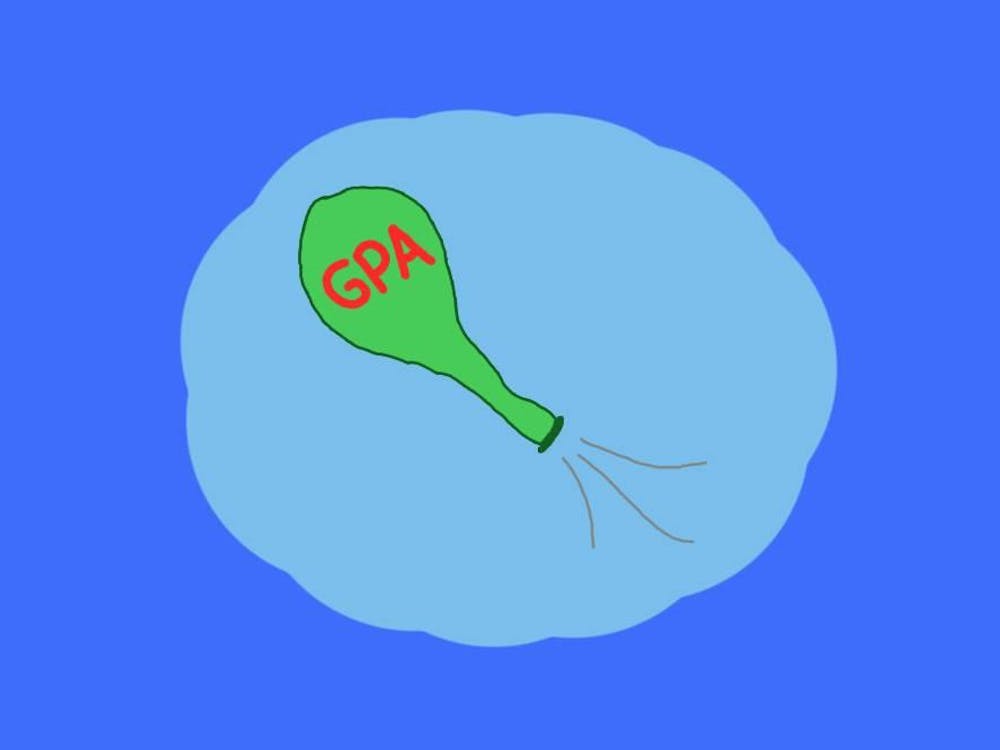PRE-MED, Pre-Comm, Pre-Law. My friend at the Architecture School has even coined a new title for himself and tells people that he's Pre-Arch. When asked what I want to major in, I am tempted to jump on the pre-professional train and say journalism. But as I open my mouth to say it, the word transforms into "English" as I check myself and fit journalism into the closest University version.
But now, with whispers of a Media Studies program finally turning into an audible conversation, students interested in communications will be given a major to call their own. Media Studies now is being developed as an interdisciplinary program in the College, and is anticipated to start next fall. As the curriculum is created, the question remains: How can the University integrate a program with pre-professional aims into the College's liberal arts tradition?
The Media Studies program goes against the College's grain of broad liberal arts education, forfeiting it for a more job-oriented mentality. Because of this, Media Studies could face the risk of being manipulated to better fit the College's classical education. But in this case, what makes the Media Studies program unique is its specialized edge. This component is most beneficial if used in conjunction with the liberal arts, instead of getting lost in them.
In the 1999-2000 Student Handbook, Assoc. College Dean Stephen Plog writes, "The College of Arts and Sciences is not a pre-professional school. There is no specific course or program within the College curriculum that will train you, for example, to become a lawyer or banker." Plog goes on to explain how, instead, the ability to think and write critically and make responsible choices will be looked upon favorably by graduate schools and employers.
This statement is partially true in that the skills acquired to study the liberal arts are as important as the actual content learned. But Media Studies, as relatively pre-professional as it is, will be no exception. Although the program will include classes like Production and Seminars on Research, it also will feature elements of sociology, psychology and history, tweaked to fit the program's needs. As the name implies, Media Studies will be an intense look at the world of professional journalism, as well as a survey of its background and historical significance. The critical skills on which the College prides itself still will be honed and emphasized, but the added bonus of Media Studies is that it channels this liberal arts education into a specific job outlet.
Plog concludes, "Your ultimate success in completing [your academic program] will give you a sense of accomplishment that will build your confidence to embrace the opportunities that await you after graduation."
Rather than just leaving students with a sense of accomplishment, however, Media Studies will immediately teach them how to use their skills in a career. In some ways, it is the best of both worlds. With semester and summer media internships being coordinated with the University Internship Program, the broad liberal arts education of the College is combined with the professionalism of the other schools at the University.
English Prof. Johanna Drucker, who is in charge of creating the program, designed and implemented a similar program on the Purchase campus of the State University of New York. "While it's great to participate with student-run communications on campus, I'm sure all students can also benefit from high-powered work in the actual field," Drucker said in a personal interview. "We are not just going to be a broadcasting or journalism program. If you're going to succeed professionally, you still need the skills of a liberal arts education. However, the hands-on approach we are trying to take will set Media Studies apart from most courses of study in the College."
College students who are willing to forgo the puffed pride of a pre-professional education will be able to put their degree toward a job when they leave. Media Studies is a boon to the College in that it offers a way to apply the liberal arts training to a career field that can specially utilize it. A career in media requires strong writing skills and the ability to analyze information and think critically. The ideal media program will not detract from these humanities skills but give them direction.
I recently saw a t-shirt that expressed the fear of every College student - "Hi, I'm a liberal arts major. Would you like fries with that?" While the College serves up an excellent main course, the media program - with its pre-professional elements - could make an even better side dish.
(Diya Gullapalli is a first-year College student.)




